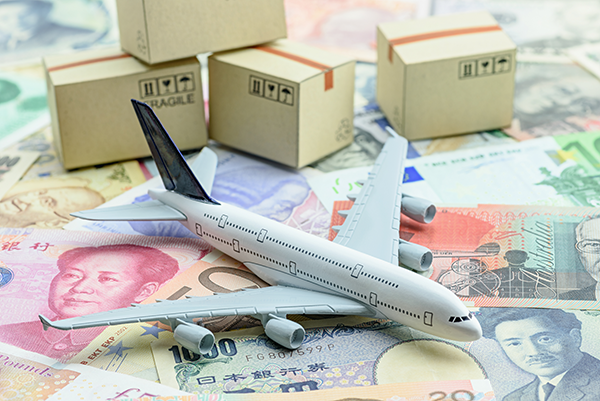With robust markets and booming e-commerce, air cargo should be poised for spectacular growth in 2018. Right? Well, not so fast.
Ironically, right at a time when markets are more ready than ever for air cargo service, there is a serious disconnect with the future. To be fair, Air Cargo is already a global driver of world trade; 35% of total trade by value, representing close to $7 Trillion worth of goods being transported around the world by air. That’s a very big pie, much of which is owned by the integrators, as we know. So why the snag? In a word, technology.
While so many segments of the Logistics industry are moving at warp speed into technology advances, the air cargo carriers have been surprisingly slow in keeping pace with those sectors. At a time when the airline’s major logistics customers are faced with interfacing with forwarding technologies prescribed by Industry 4.0 protocol, air cargo shows up as the weak link in consummating 21 Century supply chain initiatives.
For example, while our forwarder friends and 3PLs are adopting tech like IoT, drones and more, air cargo is still grappling with delivering the low-hanging fruit of real-time information at every shipment milestone for tracking or real-time capacity decisions that impact the business. And take basic mobility which has become a customer expectation across the board, and especially for our passenger-side counterparts, to drive customer experience and loyalty.
The technology exists, again low-hanging fruit, to deliver mobility from booking to the destination and beyond, from a smartphone. And then there’s using apps on iPads in the warehouse to streamline operations and forward e-AWB paperless initiatives and more. The disconcerting thing is that all of this technology is available and as close as integration via APIs—yet not widely adopted— in spite of concerted efforts by IATA to move the needle toward paperless, e-freight, and more.
So, let’s talk solutions. If embracing the latest and best technology is the answer, this calls for the immediate adoption of transformative technologies like Cloud Computing, Big Data/BI and Mobility that are bringing about positive changes for others in the Cargo Value Chain.
The good news is that with recent innovations, these things can be implemented right now—and in months not years. Since the latest technologies are inherently cloud-based, there is no risk of investing in a lot of proprietary technology that becomes obsolete before it’s even installed. Digital transformation can be achieved at a fraction of cost, resources and critical time to market.
Whether it’s customer empowering moves such as self-service, customer experience and loyalty—or the many stripes of cost savings or other efficiencies that are desired—the fundamental technology is here, now, and easy to implement.
And with these easy, affordable solutions in plain view, perhaps air cargo carriers can think differently—to move more imaginatively—and thus be ready to intersect with the technology advances of our partners in the value-chain when the critical moment arrives. Just imagine.
Want to know more? I invite you to contact us to discuss innovative solutions for achieving Digital Transformation. Our solutions are designed specifically for Airlines competing in Air Cargo arena. We’re on a mission to help you:
- Achieve seamless Horizontal integration with partners and stakeholders across the entire value chain.
- Reach out to shippers and booming E-Commerce markets by providing an “end-to-end” value chain with first and last mile service.
- Continuous innovation and optimization at the core of the traditional Value Chain.
Feel free to contact me directly at olivier@smartkargo.com with any questions you may have.
Bio
Mr. Olivier Houri is the newest member of the QuantumID Technologies| SmartKargo team, serving as Executive Vice President of Corporate Strategy since May 2017. Prior to joining SmartKargo, he has spent more than 20 years serving the Air Transportation industry, most recently as the President & Global Leader of Unisys Global Travel & Transportation Industry business. Prior to this, he led the Global Air Transport Consulting Practice at Cap Gemini Group and Cap Gemini Ernst & Young.


